Pakistan ‘would consider de-escalation if India stops attacks’
Both countries have traded attacks in a conflict triggered by a massacre last month.

Pakistan’s foreign minister has said his country would consider de-escalation if India stops further attacks.
The comments by Ishaq Dar came after India said it was committed to non-escalation if Pakistan reciprocates.
Both countries have traded strikes on Saturday – the latest escalation in a conflict triggered by a massacre last month that India blames on Pakistan.
Mr Dar also warned that if India launched any strikes, “our response will follow”.
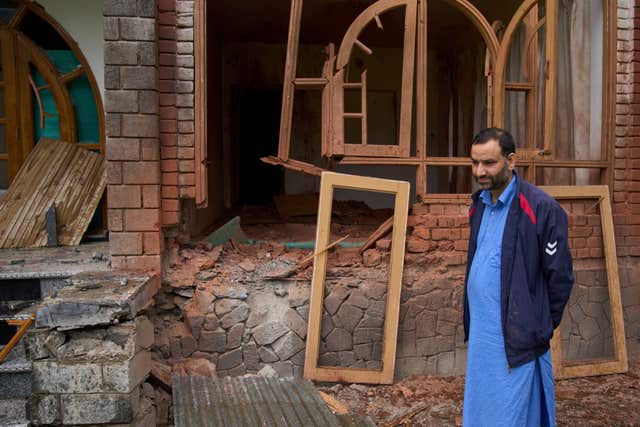
The foreign minister told Pakistan’s Geo News that he also conveyed this message to US secretary of state Marco Rubio when he contacted him after speaking to New Delhi two hours previously.
“We responded because our patience had reached its limit. If they stop here, we will also consider stopping,” he said.
India said it targeted Pakistani military bases after Islamabad fired several high-speed missiles at multiple Indian air bases in the country’s Punjab state.
Pakistan earlier said it had intercepted most missiles targeting three air bases, and that retaliatory strikes on India were under way.
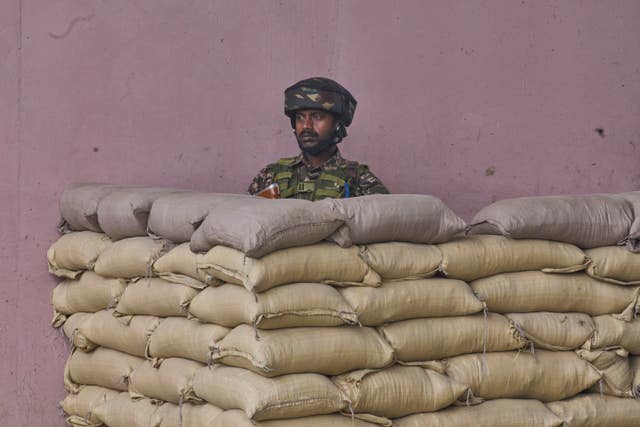
Indian Colonel Sofiya Qureshi told a press conference in New Delhi that Pakistan also targeted health facilities and schools at its three air bases in Indian-controlled Kashmir.
“Befitting reply has been given to Pakistani actions,” she said.
Wing Commander Vyomika Singh, who was also present at the news conference, said India was committed to “non-escalation, provided the Pakistan side reciprocates”.
However, Pakistani ground forces have been observed mobilising towards forward areas, she said, “indicating an offensive intent to further escalation”.
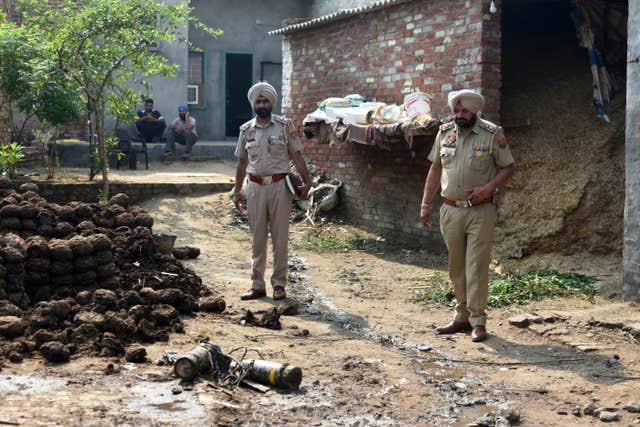
“Indian armed forces remain in a high state of operational readiness,” Wing Commander Singh added.
She said Indian armed forces carried out “precision strikes only at identified military targets in response to Pakistani actions”.
“All hostile actions have been effectively countered and responded proportionately,” she added.
The Pakistani army’s actions were a “provocation” and India’s response was “measured”, foreign secretary Vikram Misri said.
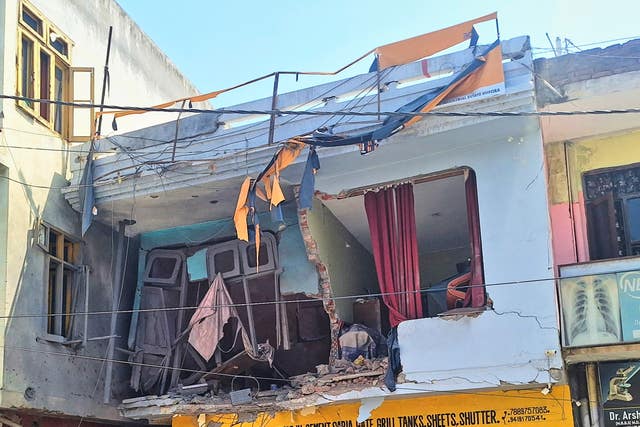
The Pakistani military said it used medium-range Fateh missiles to target an Indian missile storage facility and airbases in Pathankot and Udhampur.
People living in Indian-controlled Kashmir said they heard loud explosions at multiple places in the region, including the disputed region’s two big cities of Srinagar and Jammu, as well as the garrison town of Udhampur.
“Explosions that we are hearing today are different from the ones we heard last two nights during drone attacks,” said Sheesh Paul Vaid, the region’s former top police official and a resident of Jammu. “It looks like a war here.”
Lieutenant General Ahmad Sharif said in a televised address that all Pakistan Air Force assets are safe following the Indian strikes and most of the missiles have been intercepted.
He added that some of the Indian missiles also hit India’s eastern Punjab, saying “this is a provocation of the highest order”.
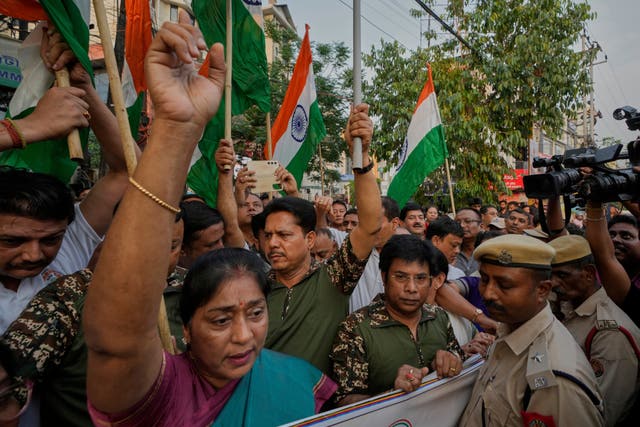
The army spokesman said the missiles fired by India targeted the Nur Khan air base in the garrison city of Rawalpindi, Murid air base in Chakwal city and Rafiqui air base in the Jhang district in the eastern Punjab province.
Mr Sharif said Pakistan had evidence some of the missiles fired by India have also gone into Afghanistan, and to prove it.
He said that “continuing its naked aggression, India, some time back, has fired air-to-surface missiles with its jets”.
“These blatant acts of aggression by India reflect the paranoia within the Indian mindset which continues to grow after the failure of each of its acts and the paranoia continues also to grow as it realises that they cannot break the resolve and will of the people of Pakistan,” he said.
India’s army said it destroyed multiple armed Pakistani drones that were spotted flying over a military base in northern Punjab state’s Amritsar city early on Saturday.
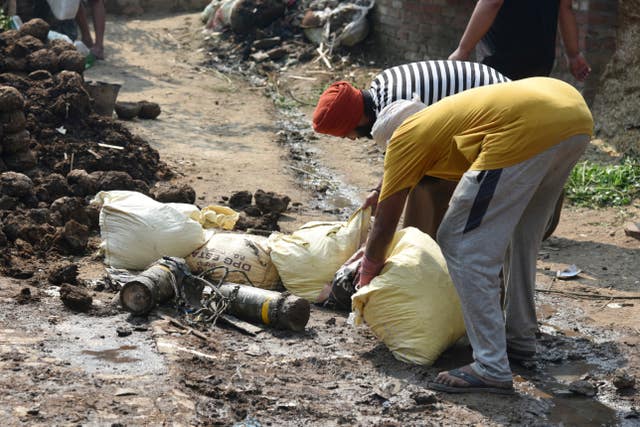
“Pakistan’s blatant attempt to violate India’s sovereignty and endanger civilians is unacceptable,” the statement said.
In Pakistan, the civil aviation authority shut the country’s airports for all flight operations and people in major cities were seen chanting slogans supporting the armed forces.
The Group of Seven nations, or G7, urged “maximum restraint” from India and Pakistan, warning on Friday that further military escalation posed a serious threat to regional stability.
The latest developments came after Indian and Pakistani soldiers exchanged heavy volleys of shells and gunfire across their frontier in the disputed Himalayan region of Kashmir, killing at least five civilians in a growing military stand-off that erupted following an attack on tourists in the India-controlled portion of the disputed region.
Tensions between the nuclear-armed neighbours have soared since an attack on a tourist site in India-controlled Kashmir left 26 civilians dead, mostly Hindu Indian tourists, on April 22.
New Delhi has blamed Pakistan for backing the attack, an accusation which Islamabad rejects.





